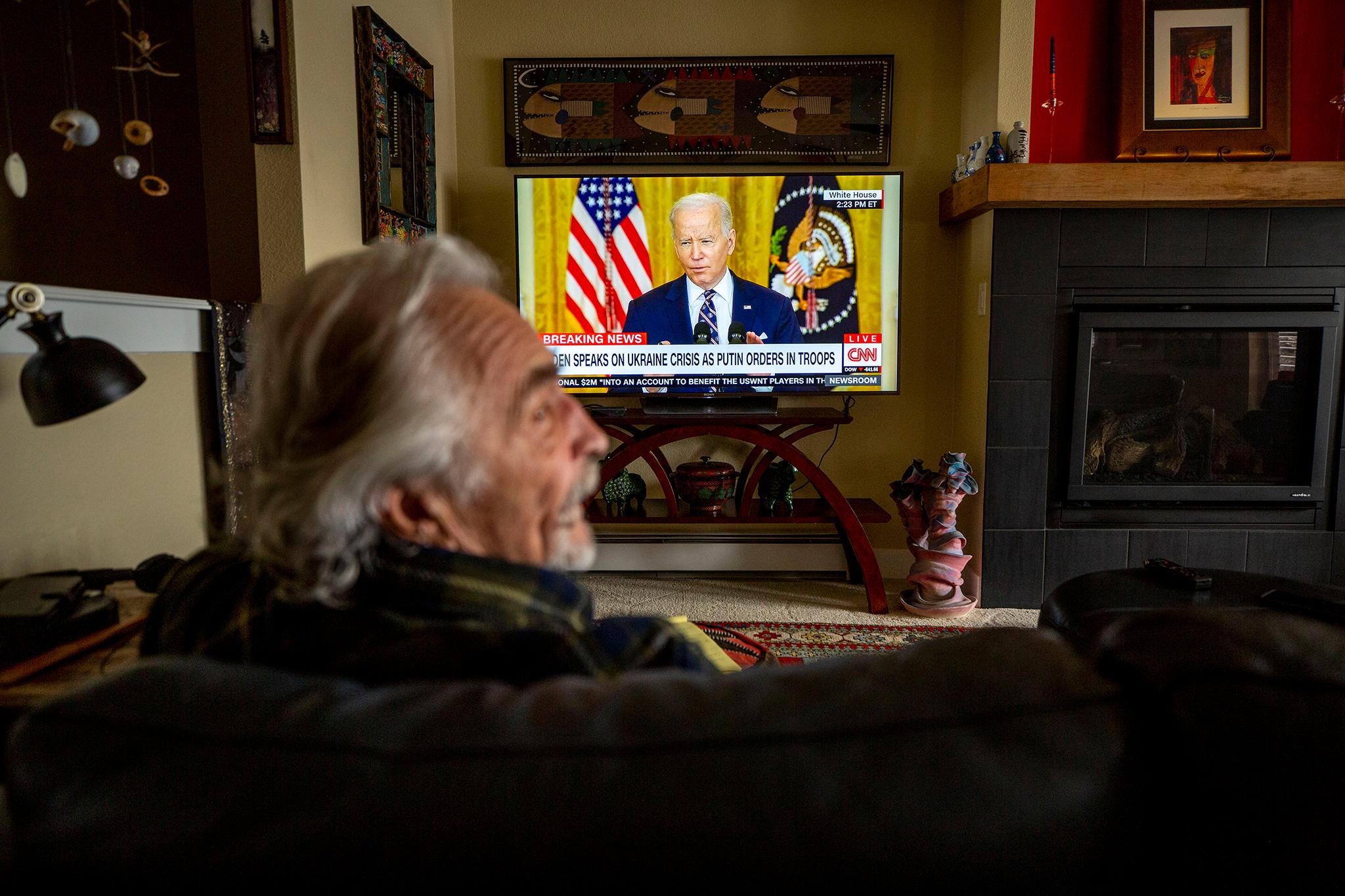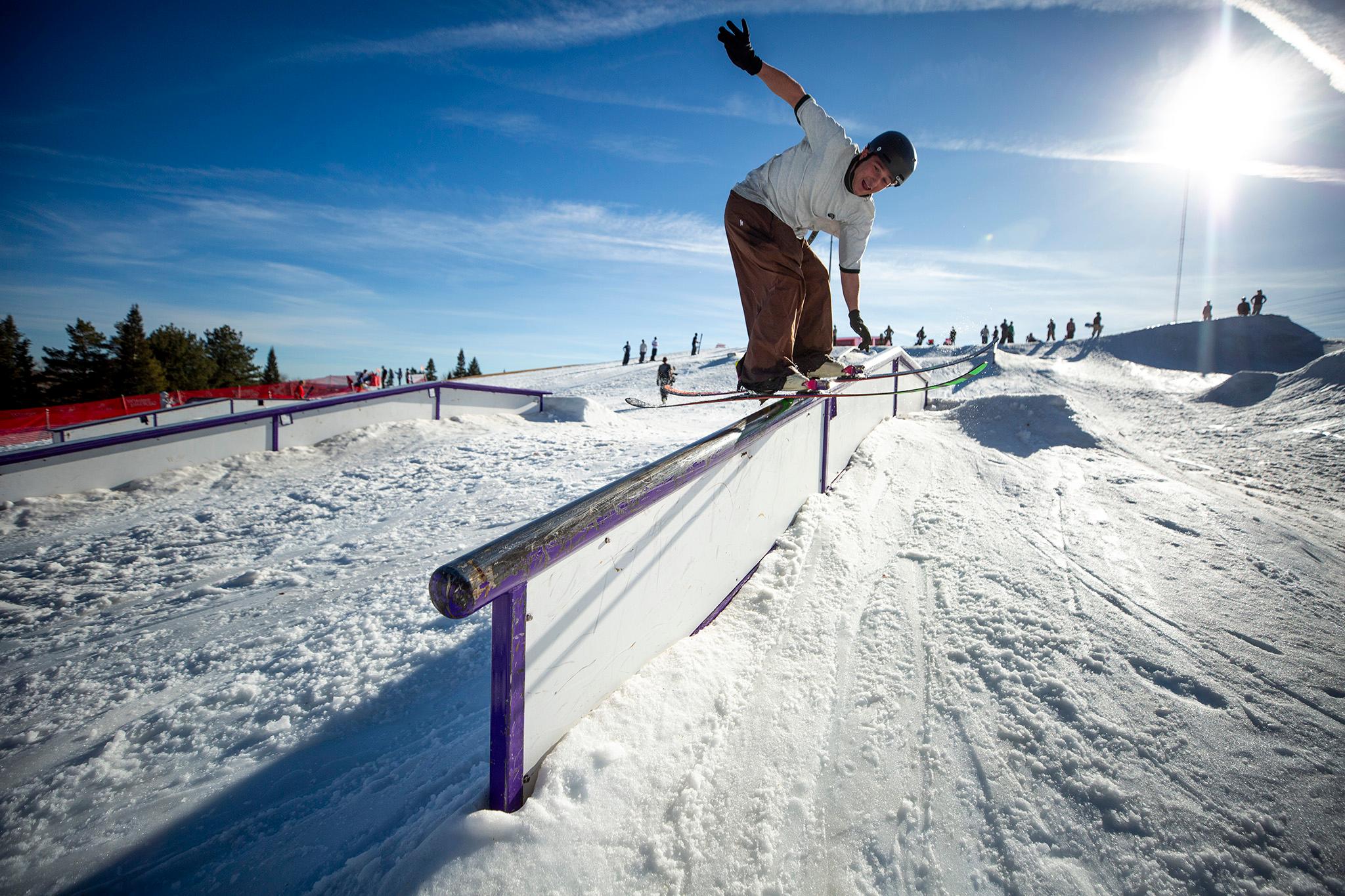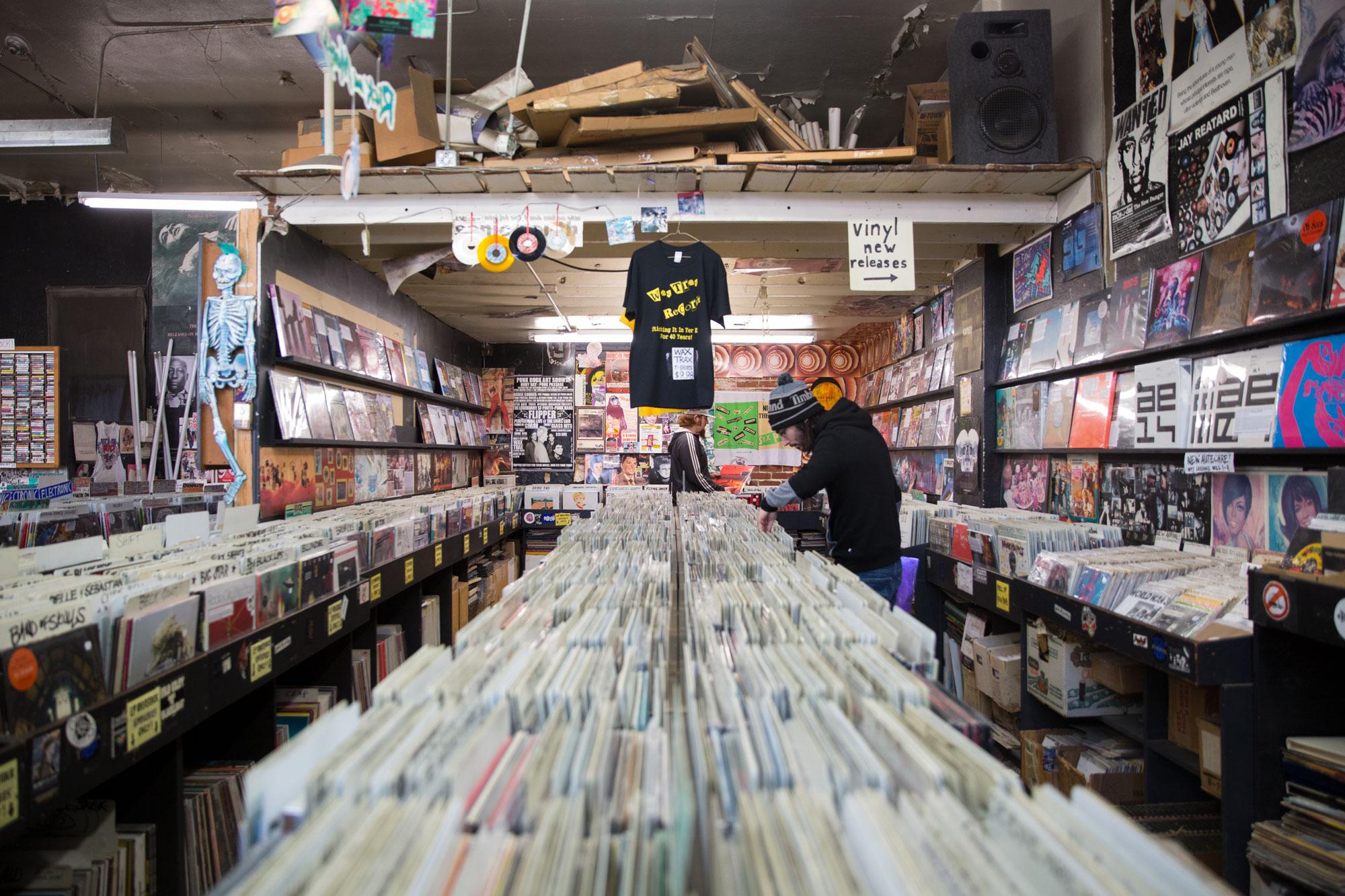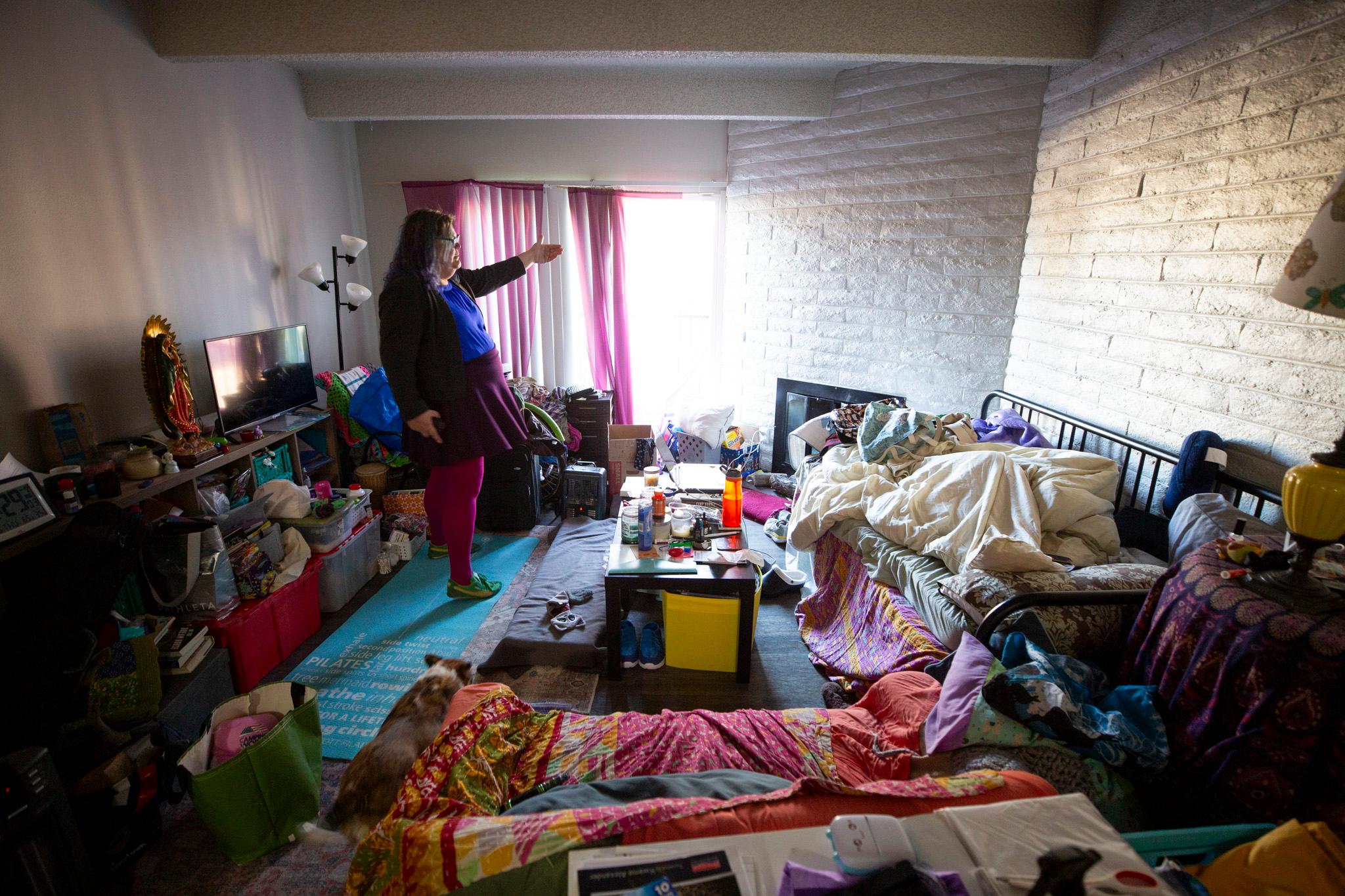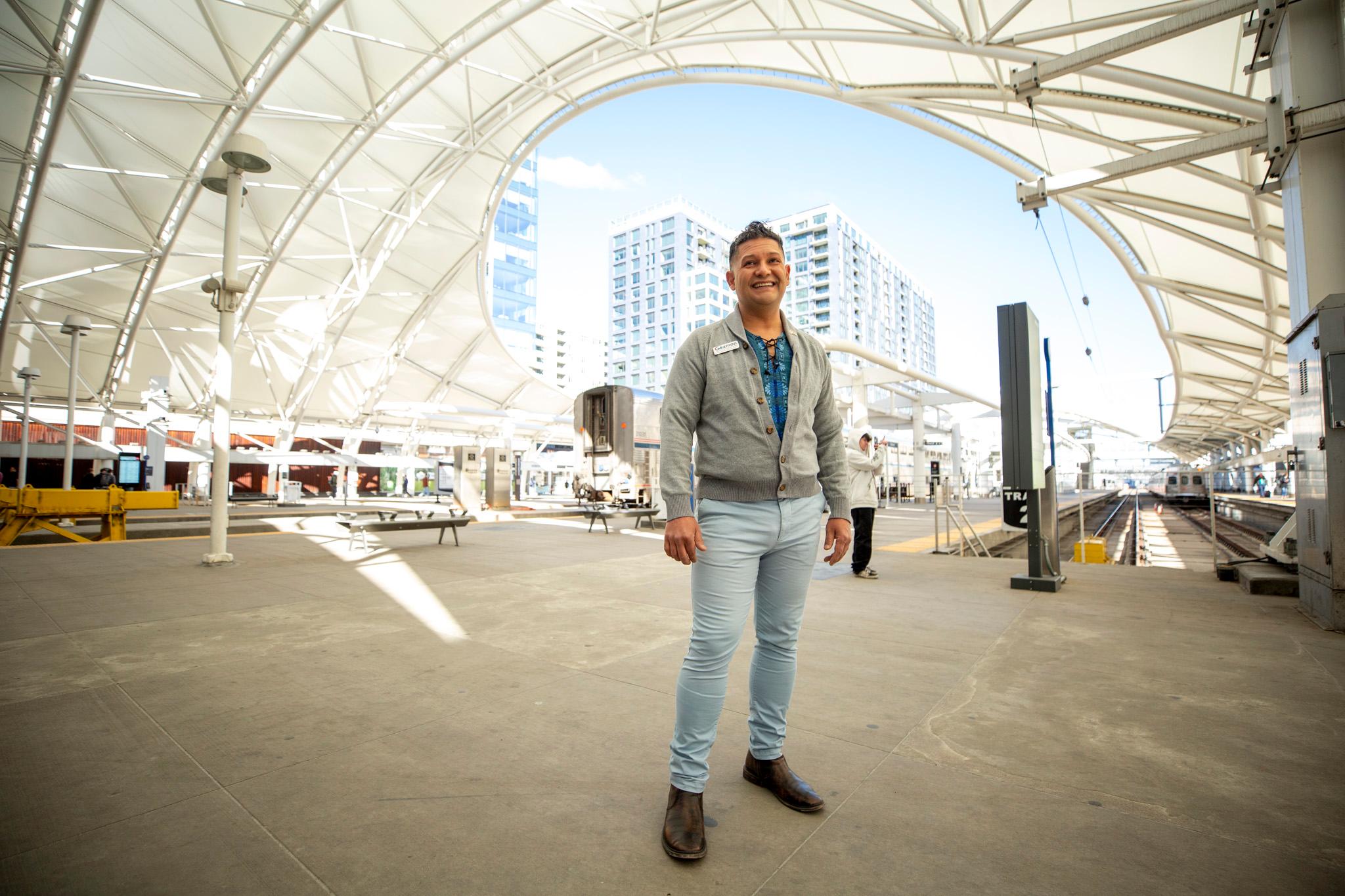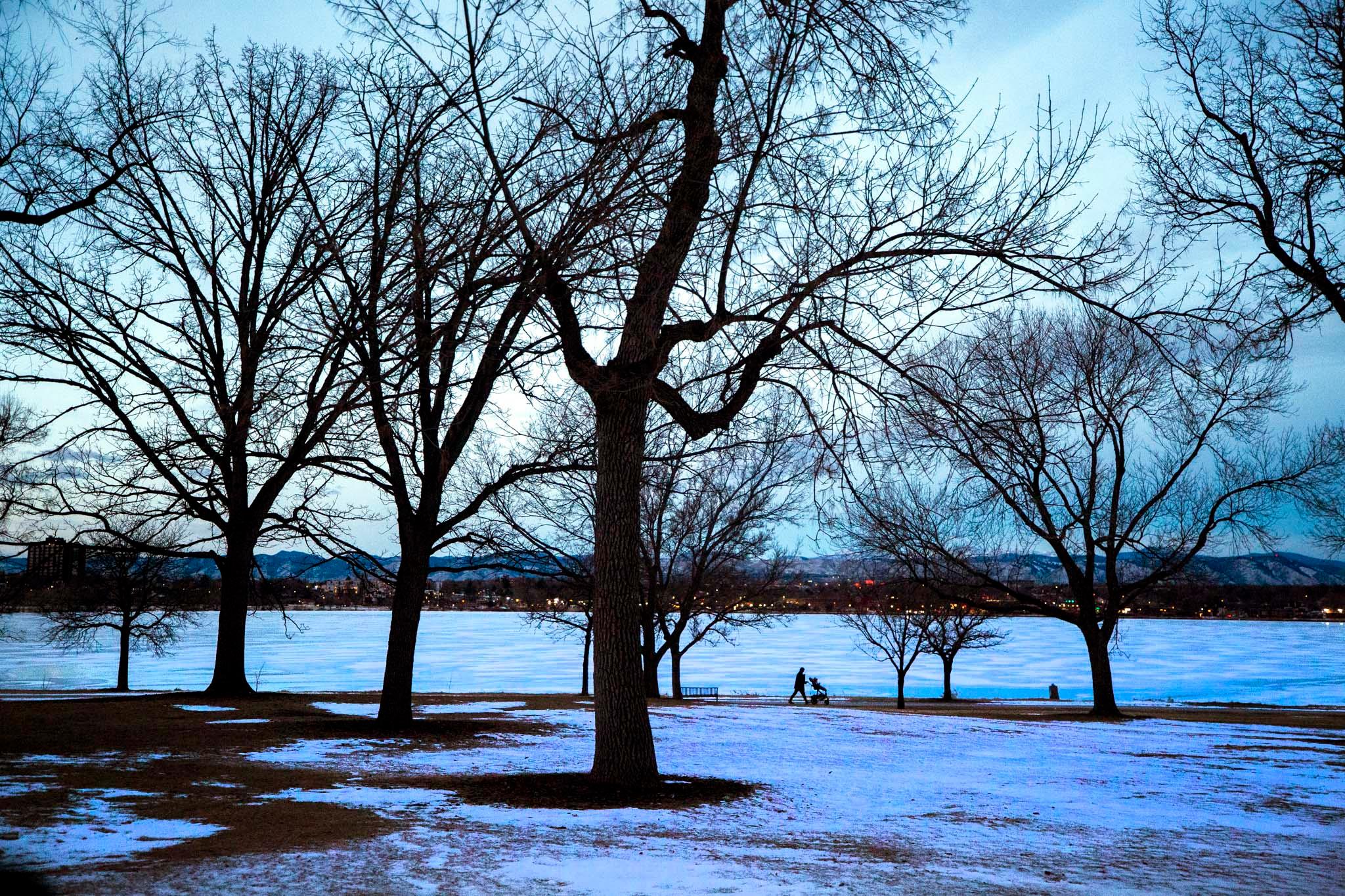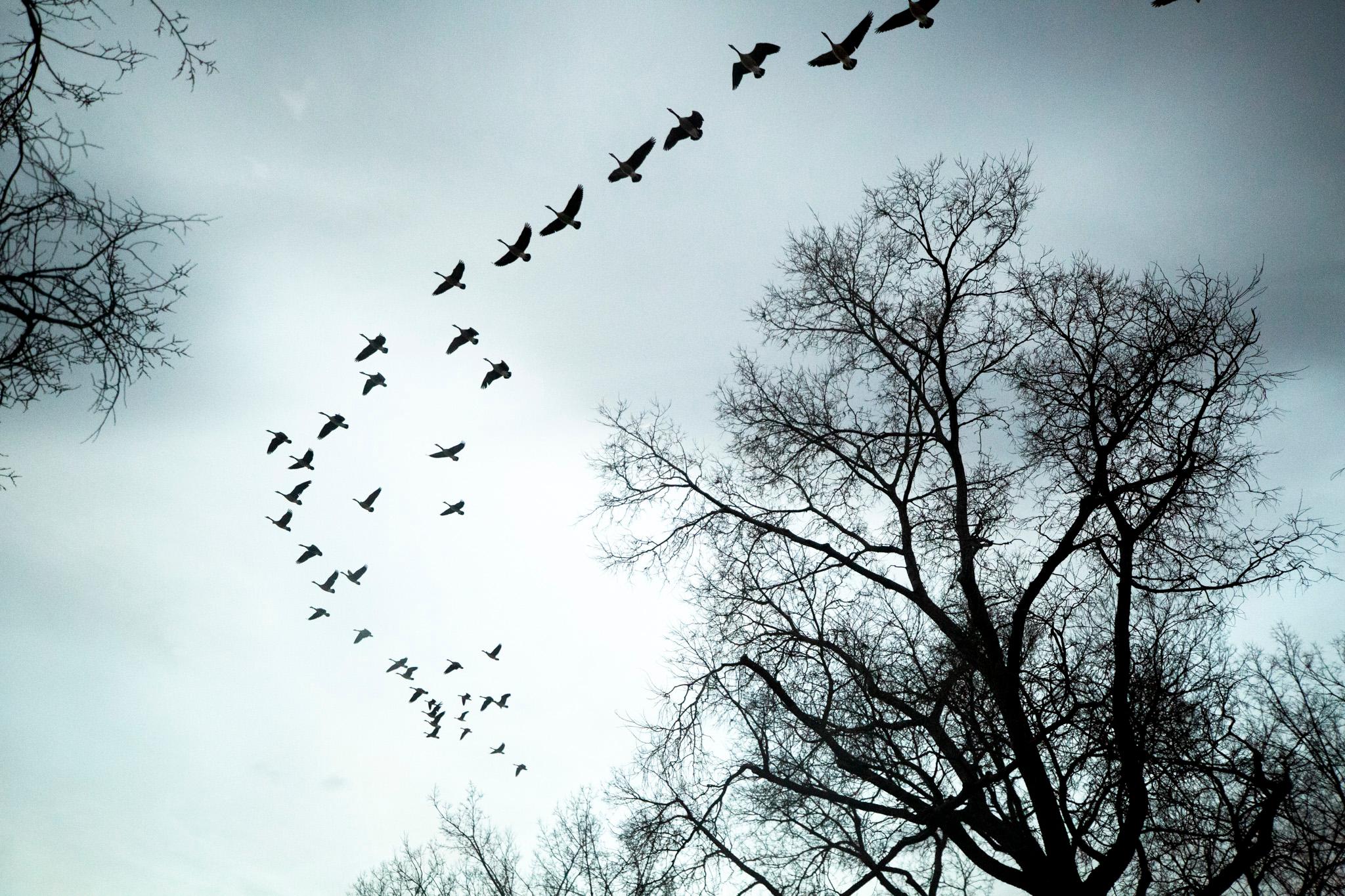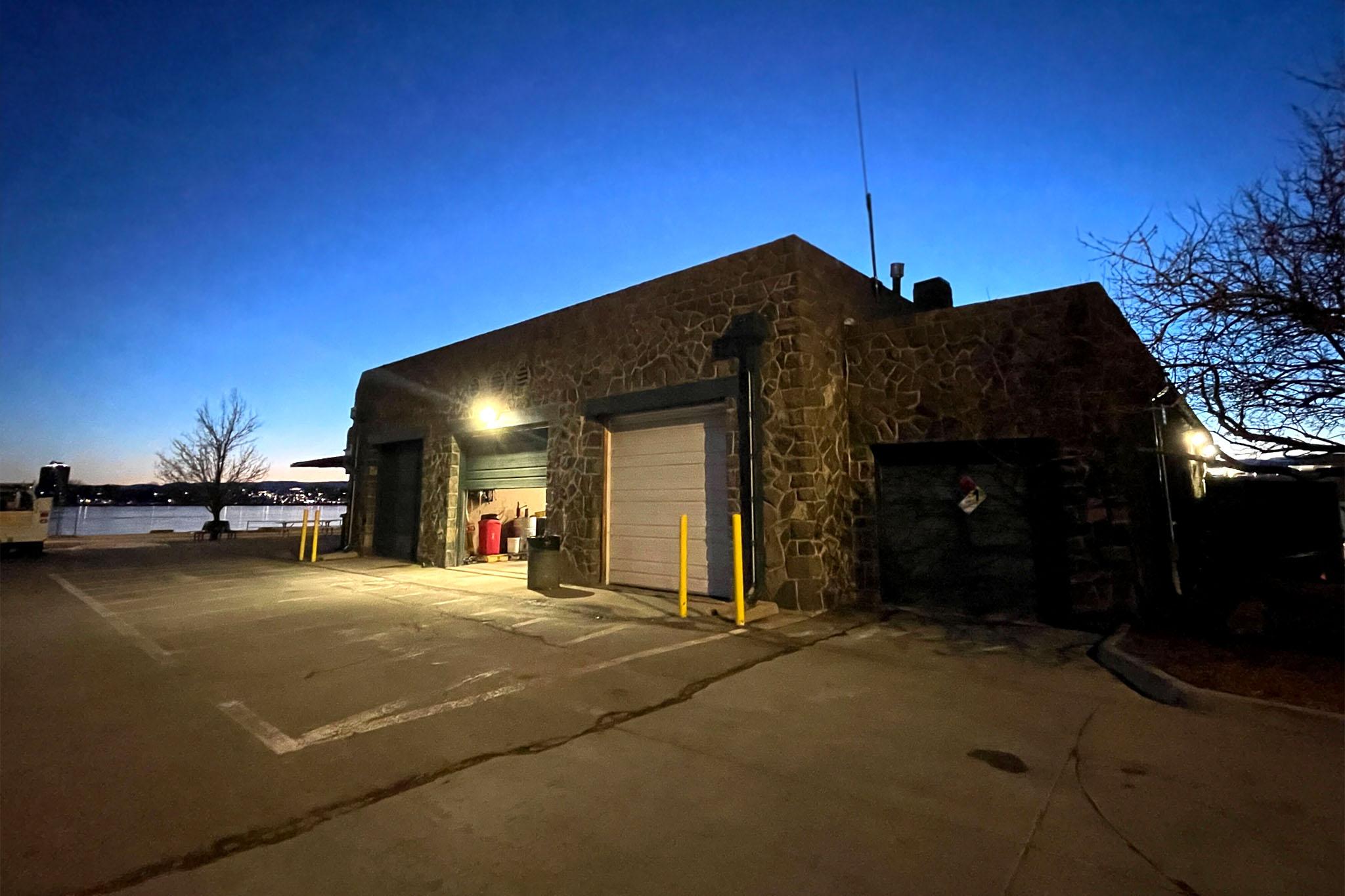"I'm hoping diplomacy is still available," President Joe Biden said on live TV Tuesday before he turned and left his podium without taking questions. Russian President Vladimir Putin had just recognized two separatist regions of eastern Ukraine as independent states, and U.S. officials warned an attack on Ukraine could be imminent. The President of the United States had taken the stage to announce economic sanctions to retaliate against Russia.
"Another piece of bulls***!" Hlib Hayuk yelled at the screen as he paced the living room of his Lakewood home. "This is exactly what I was saying!"
He says he only watches a couple of hours of television every day. But Hayuk's wife, T.K., said her husband has been glued to the news in recent days.
"Sanctions are imposed in order to make us feel good, but they don't do anything," he said, seething.
Hayuk spent 30 years teaching the geography of the former Soviet Union at Towson University in Baltimore, MD. He also served as an active reserve member in the U.S. military. Many summers, when he had a break from classes, he'd take assignments and jet off to places like Somalia or the Pentagon to weigh in on foreign policy moves related to Russia.
He's retired now, but can't stop himself from analyzing this tense moment between Russia, Ukraine and NATO countries. It's his expertise, but it's also really personal.
Hayuk fled Ukrainian territory when he was just a boy. He's been influenced by Russian policy and aggression his whole life, and his career has centered around preventing a conflict like the one he's been watching unfold from his living room.
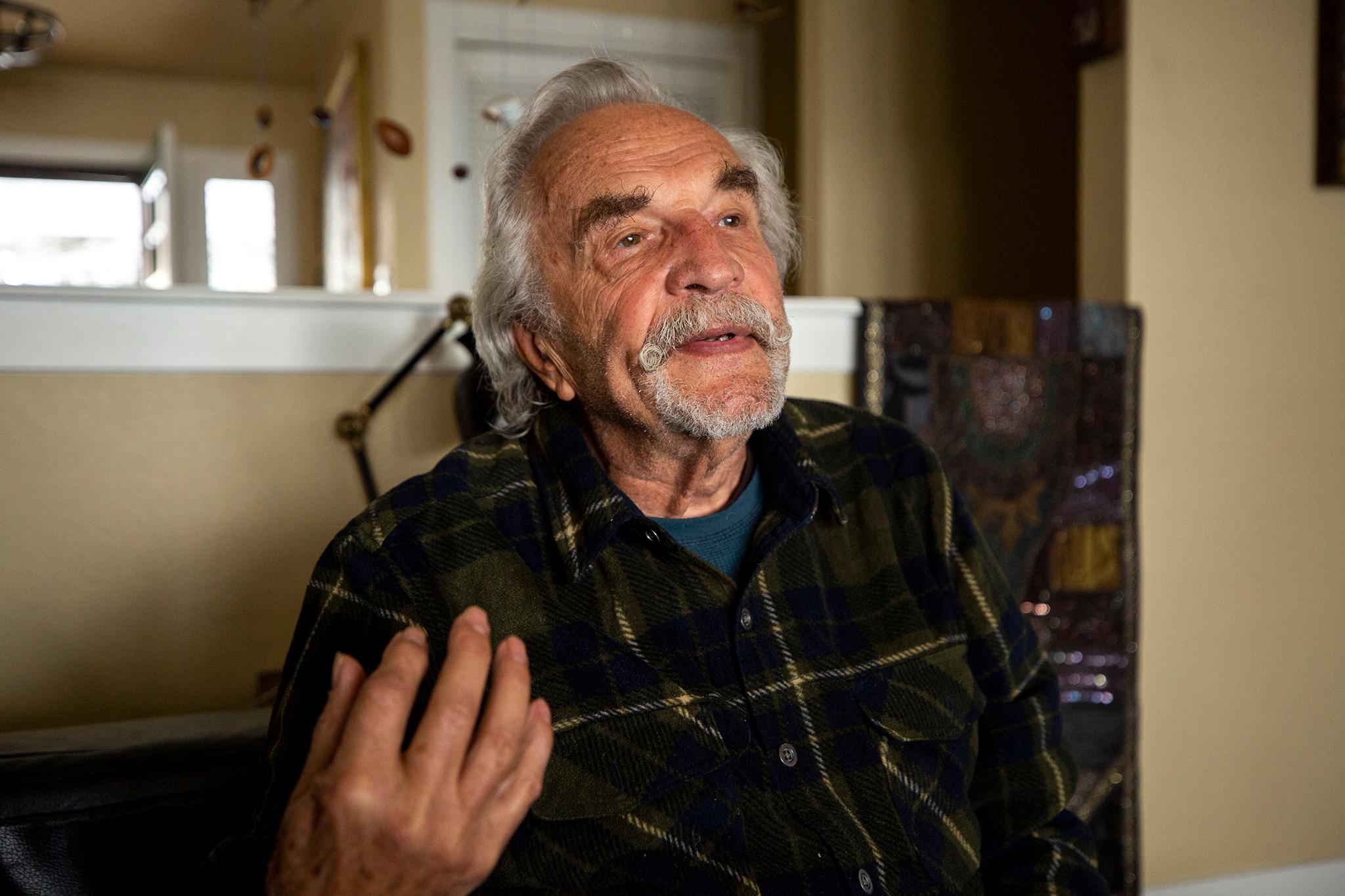
Hayuk was a child when it was clear Hitler's Germany would fall and Stalin's Russia would move into Ukraine.
While Kyiv, the capitol of Ukraine, has stood in some form for thousands of years, the country around it was only officially founded in the 20th century. When Hayuk was born in 1939, the area his family inhabited in western Ukraine was occupied by Poland.
Russian forces took the territory at the start of World War II, before Hitler's armies captured it as they expanded throughout Europe. Both militaries executed Hayuk's relatives, he said. As the war wound down and Stalin's troops were poised to return, his family decided they would not stay and be subjugated yet again. They began to walk west.
They didn't get far before being picked up by the German military and taken to a work camp where his parents made anti-aircraft camouflage in exchange for a few potatoes each day to feed their children.
"Then on May 8th, all of a sudden, deathly quiet in town. There's a few white sheets hanging out of windows. I remember that," he recalled. "And my sister and I, we hear that the Americans are coming."
A few days later, Hayuk watched in awe as people unlike those he'd ever seen marched in formation through the village.
"We realized it was a Colored transportation unit," he whispered, his mind transported back in time. "These were the first Black people I saw."
He remembers, "like a photo," one soldier bending down to offer him an orange, some crackers and peanut butter. These were all things he'd never encountered in his life.
"Since this is Black history month," he said, eyes welling with tears, "I cannot - I cannot thank those soldiers, and that soldier, ever enough."
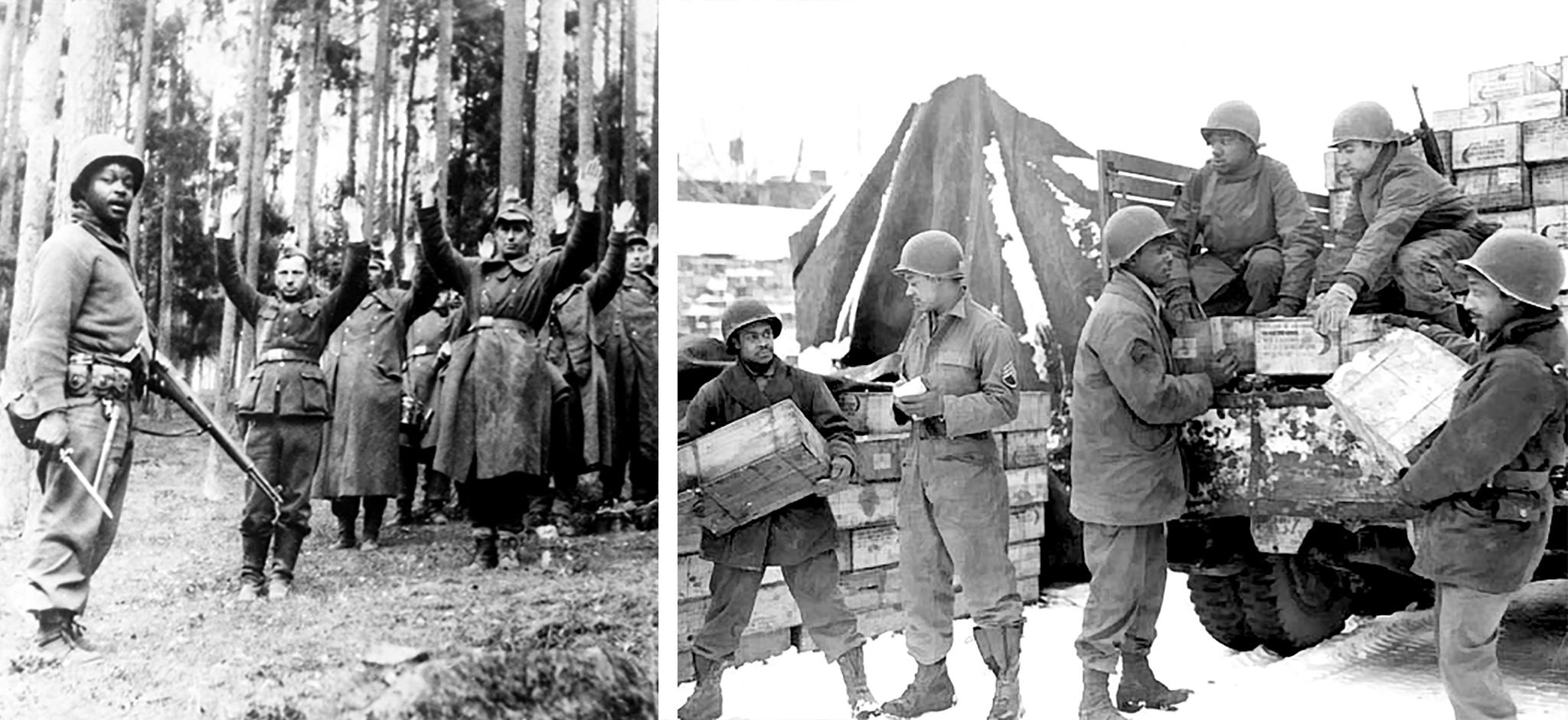
Because they had Polish citizenship, Hayuk and his family were allowed to escape Russia again.
He, his sister, mother and father were allowed to go to the nearby town of Schweinfurt, Germany, where they'd live as they waited to resettle outside of Europe. But many of the displaced Ukrainians held in the work camp with them were set to be deported to the USSR.
"They knew that they would be shipped back to the Soviet Union," he remembered. "They knew that they were going to certain death."
His parents knew it, too, so they hatched a plan to forge Polish documents and sneak their compatriots away from Stalin's grasp.
"My mother's cousin had a typewriter, and they would sit and just type up little notes of something in Polish and then fake signatures and fake rubber stamps," he said. "The story was they made a rubber stamp to resemble the Polish eagle out of a potato, and use some red ink or blood or beet juice, or whatever."
His mother, who was at the train station when the deportees were shipped east, told him she saw a man kill his own baby to spare it the pain of returning to the USSR. Stalin would go on to kill millions of people.
"My parents saved probably several dozen families," Hayuk said.
His family spent almost a year in Schweinfurt before they were taken to refugee camps in other cities. Before they left, Hayuk remembered he'd follow U.S. soldiers around as they took smoke breaks, collect their cigarette butts, and gather the tobacco in a tin. His father would use it to trade for food.
Then, five years after his family left their home, Hayuk's parents got word they could resettle again -- this time in America.
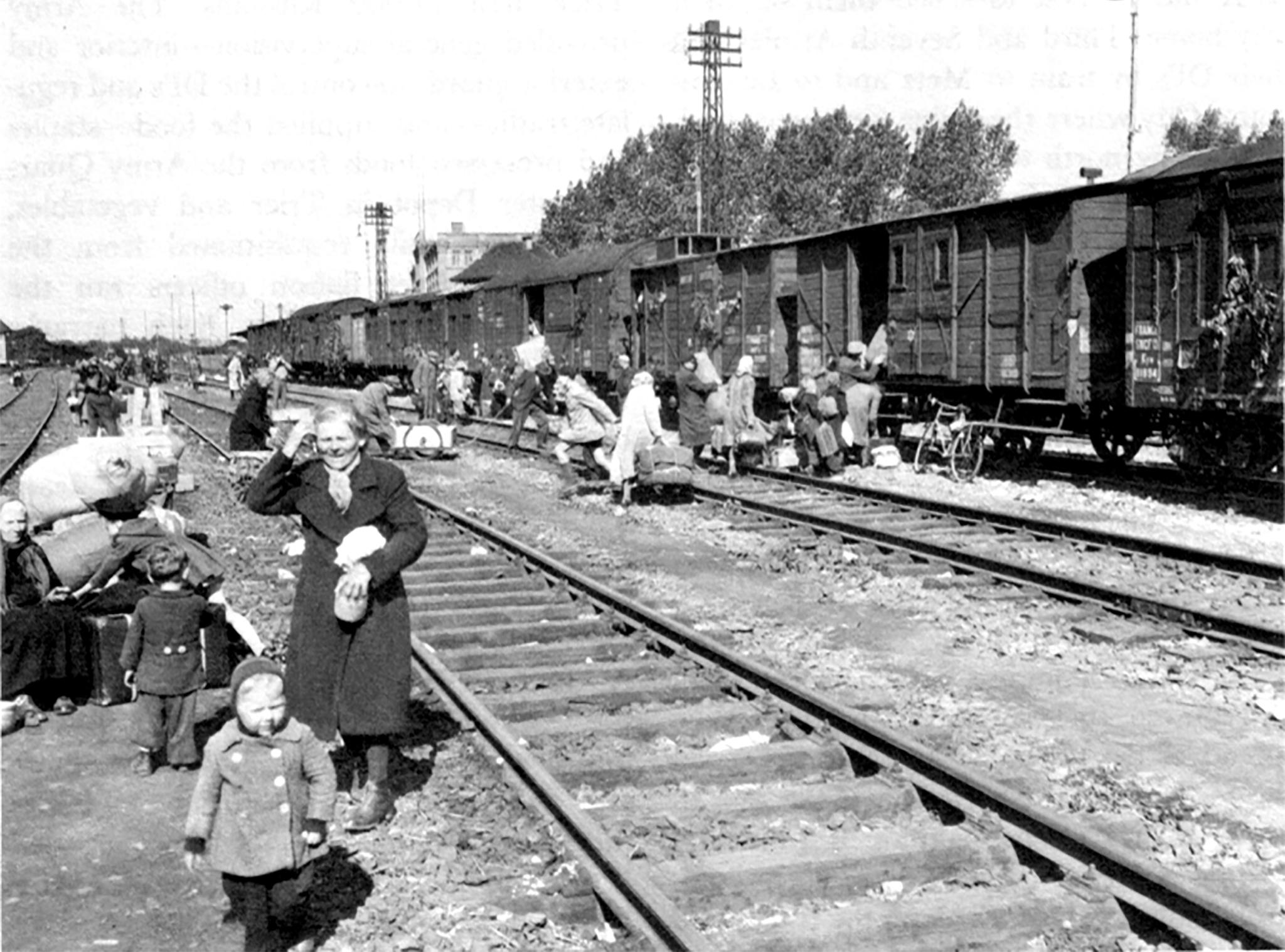
In New York, he found new direction.
Hayuk's father was active in the Ukrainian Orthodox Church, and when they arrived in upstate New York, a bishop asked him to help set up new places for refugees to worship. As Hayuk went to school and took jobs delivering newspapers by bike, his dad moved the family from Ogdensburg to Syracuse and then Brooklyn to build churches and gather congregations.
When he graduated high school, Hayuk went to the City College of New York where he could begin the next chapter of his life.
One day, in between classes, he ran into a friend wearing an ROTC uniform.
"I said, what the hell? What is that?" he remembered. "[He said,] 'You learn how to shoot and march. And it's a lot of fun.' So I joined the next day."
Hayuk completed the program - where he was classmates with Colin Powell - and went off to serve the mandatory two years of service after graduation. The army sent him back to Germany, back to Schweinfurt, where he lived in barracks across a small road from the refugee camp he'd slept in as a child.
Army protocol dictated that he couldn't enter the camp, but he snuck in anyway.
"I did go inside," he said, smiling. "I even found remnants of the church that my father and another priest built near the garage."
When his tour was up, Hayuk returned to the U.S. to pursue a graduate degree in geography. But he decided not to deactivate his reserve status with the military. His expertise in the Middle East and the USSR made him an asset to U.S. officials, who flew him around the world to advise diplomats in conflict zones and developing nations.
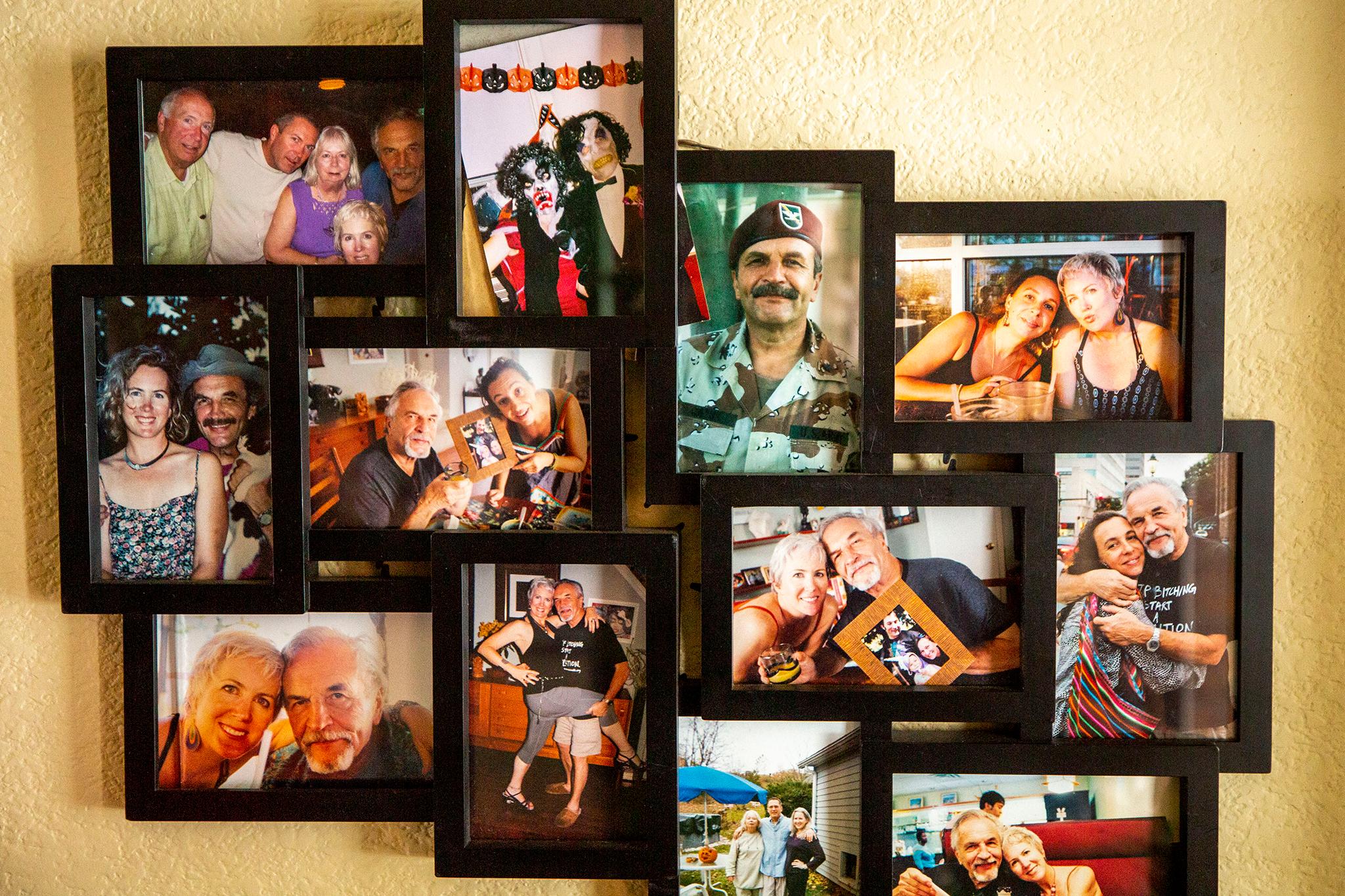
All of this experience informed Hayuk as he watched President Biden's speech on Tuesday.
According to recent polls, more than half of Americans don't want to see their country engaged in another war. It's a rare point of agreement in a nation that's become otherwise bitterly divided.
But the way Hayuk sees it, Biden's categorical decision not to send U.S. service members to Ukraine will only embolden Russian aggression.
"A man like Putin, he only understands power," he said.
While he nodded in approval when the president said a transnational pipeline for Russian gas would not be certified, he mostly felt exasperated when Biden finished his speech.
"Mr. Biden, God bless him, but he didn't make a demand. He only said you are going to be hit with sanctions. And as I said before, sanctions don't deter. I'm sorry. He's my president. I support him, but I wish he was stronger."
"Did economic sanctions work with a nation like North Korea?" he asked, agitated.
"No!"
He mused for a moment on reasons why Putin was moving now. America is divided, he said, so is Europe. But most of all, he added, Russia cannot abide a democratic Ukraine at its border. He paraphrased Zbigniew Brzezinski, an advisor to President Jimmy Carter.
"A successful, modern, prosperous, democratic, European, Ukraine - next door to autocratic, undemocratic, highly corrupt, authoritarian Russia - that's an existential threat."
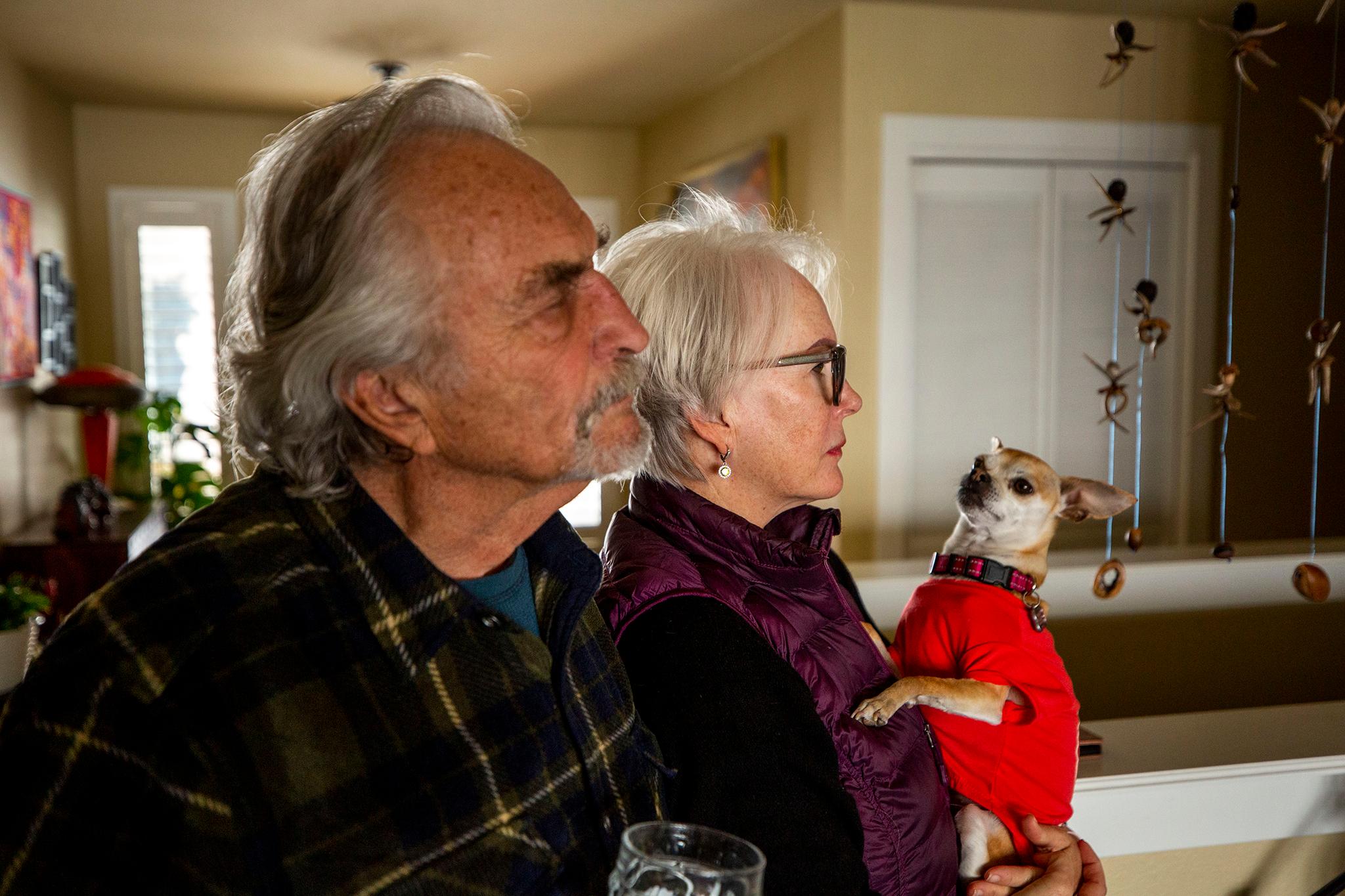
From a global perspective, Hayuk said the troops surrounding Ukraine's borders represent their own existential threat.
"It's a test of the free world. We are involved in what I would probably start referring to as the Fourth World War," he said. (The Cold War counts as World War III, in his mind.)
In particular, he said the United States will nullify a promise it made to Ukraine if it doesn't rise to defend the nation. In the 1994 Budapest Memorandum, Russia, the U.S. and Ukraine agreed to respect Ukraine's territorial borders if it relinquished 1,900 nuclear warheads left over after the Soviet Union's collapse.
"We have a legal obligation - we signed something. We have a moral obligation, and it's something that we should do in principle, because it's a country that is trying to become part of Europe."
But on a personal level, it crushes him to see Ukraine staring down the barrel of yet another invasion.
"Ukraine to me is my mother, okay? I haven't been in touch with my mother for 70-what years," he said, his voice quiet as tears began to fill his eyes. "I feel an attachment to it, which is very, very difficult to explain. But I feel this is this is the place where I took my first breath of air. This is the place where my ancestors are buried."

